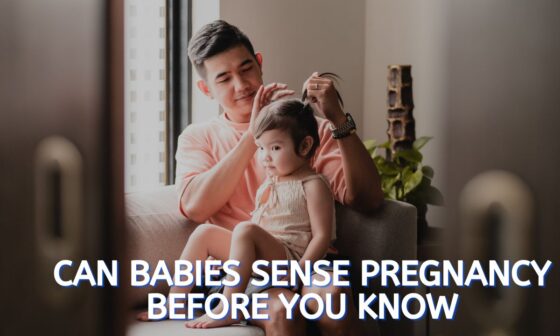In relationships, couples often develop unique and personalized ways of addressing each other. While terms of endearment like “honey,” “darling,” or “sweetheart” are common, some couples choose to call each other “mommy” and “daddy.”
This article explores the reasons why couples use these parental terms of endearment, shedding light on the psychological, emotional, and societal factors behind this phenomenon.
Why Do Couples Call Each Other Mommy and Daddy?
Couples might call each other “mommy” and “daddy” as a term of endearment or affectionate nickname within their relationship. This kind of pet name is often used in a playful or intimate manner, and it can carry different meanings for different couples. Here are a few possible reasons why some couples might use these terms. Some couples adopt playful roles within their relationship, and using terms like “mommy” and “daddy” can be a way to express a sense of care and authority in a lighthearted way. It might also be related to playful role-playing or fantasies.
1. Parental Associations
The terms “mommy” and “daddy” are often associated with nurturing and caretaking roles. Couples might use these terms as a way to convey their feelings of protection, support, and care for each other.
2. Intimacy and Vulnerability
Couples often have unique ways of expressing intimacy and vulnerability. Using terms like “mommy” and “daddy” could create a sense of emotional closeness and shared understanding within the relationship.
3. Shared Life Goals
For couples who have discussed having children or a family together in the future, these terms might symbolize their shared aspirations and commitment to their future roles as parents.
4. Nostalgia
Some people might associate these terms with childhood memories or experiences
Historical Background of Terms of Endearment
The use of “mommy” and “daddy” as terms of endearment can be traced back to the origins of familial relationships. These terms are deeply rooted in the cultural and linguistic influences that shape our understanding of parental roles and dynamics within families.
Psychological Factors
One of the psychological factors that contribute to couples using terms like “mommy” and “daddy” is attachment theory. This theory suggests that individuals seek to replicate the nurturing and secure bond they experienced with their parents in their romantic relationships. By using these terms, couples may be unconsciously reinforcing the parental roles and the associated feelings of care and protection.
1. Emotional Intimacy and Bonding
Using “mommy” and “daddy” can enhance emotional intimacy and strengthen the bond between partners. These terms create a sense of nurturing and protectiveness, fostering a deeper connection and understanding. Couples often find that these terms symbolize their commitment to supporting and caring for each other.
2. Reinforcing the Family Unit
By adopting parental terms of endearment, couples aim to create a sense of family within their relationship. These terms solidify the couple’s identity as a unit and can be seen as a way of embracing their roles as potential future parents or as a reflection of their desire to nurture their relationship.
3. Communication and Relationship Dynamics
The use of unique terms of endearment like “mommy” and “daddy” allows couples to establish a special language and form of communication that is exclusive to their relationship. These terms reinforce the couple’s bond and can serve as a form of endearment that is intimate and personal to them.
4. Societal Perceptions and Taboos
While the use of parental terms of endearment is common for many couples, societal perceptions, and taboos may vary. Social acceptance and norms play a role in how these terms are perceived. Some cultures may view such terms as affectionate and endearing, while others may find them inappropriate or overly intimate.
5. Role Reversal and Role Satisfaction
Calling each other “mommy” and “daddy” can create an avenue for role reversal within the relationship. By adopting these terms, couples can explore different dynamics, stepping into nurturing and caring roles that provide emotional support and fulfillment.
6. Personalization and Individual Preferences
Choosing terms of endearment, including “mommy” and “daddy,” is a personal decision for each couple. It allows partners to express their individual preferences and create a unique language that reflects their connection and the depth of their relationship.
7. Criticism and Controversy
The use of “mommy” and “daddy” as terms of endearment is not without criticism or controversy. Misinterpretations and misconceptions may arise, leading to assumptions about power dynamics, age regression, or inappropriate role-playing. It is important for couples to address concerns and establish clear boundaries to ensure that these terms are used in a consensual and respectful manner.
Conclusion
Couples using terms like “mommy” and “daddy” as forms of endearment find meaning in the psychological, emotional, and societal aspects that these terms represent. By adopting these roles, couples reinforce their bond, create a sense of family, and explore different dynamics within their relationship. It is a personal choice that reflects their unique connection and the depth of their commitment to one another.
FAQs
1Q. Is it normal for couples to call each other “mommy” and “daddy”?
A: Yes, it is normal for couples to use terms of endearment that include “mommy” and “daddy.” These terms can symbolize nurturing, care, and emotional intimacy within the relationship.
2Q. Why do some people find it strange for couples to call each other “mommy” and “daddy”?
A: Societal norms and personal preferences vary, leading to different perceptions of these terms. Some individuals may find it unusual or inappropriate due to their own beliefs and cultural background.
3Q. Does using “mommy” and “daddy” in a relationship indicate a desire for parenthood?
A: While the use of these terms can signify an association with parental roles, it does not necessarily indicate a desire for parenthood. Couples may use these terms to express care, support, and emotional connection.







